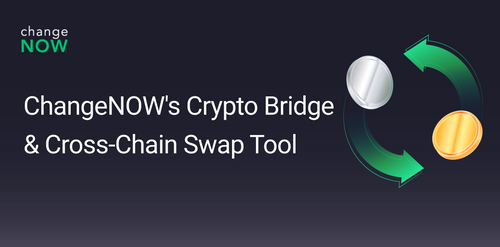Weekly Wrap: Binance Balances Losses From Exploit in Quarterly Burn
EU Legislators Vote Show Overwhelming Support For MiCA Crypto Policy
The European Parliament Committee on Economic and Monetary Affairs (ECON) has voted in favor of a bill addressing crypto regulation. A Monday Twitter post from the ECON Committee Press revealed that the Markets in Crypto-Assets framework, the MiCA policy, had passed successfully. The vote took place on Oct 3 and saw 28 of the member legislators show support for the bill with only 1 member voting against it.
Committee member Stefan Berger confirmed the news later on. He also pointed out that the vote took place after various exchanges between the EU Council, the European Commission, and the European Parliament. MiCA will still undergo another vote to secure parliamentary approval before it passes into law.
The MiCA proposal aims to introduce a regulatory framework for crypto assets across the 27 EU member states. Beneath EU supervision crypto firms can push their services provided they offer a minimum guarantee of consumer protection.

Coin Center Slams US Treasury With Lawsuit
On October 12, the crypto advocacy group Coin Center filed a suit against the US Treasury Department’s Office of Foreign Asset Control (OFAC). Coin Center’s suit addresses the regulator’s decision to sanction privacy protocol Tornado Cash in August. According to the complaint, the ban prevents private transactions on Ethereum and as such, is harmful to US-based Tornado Cash users.
Coin Center explained that a privacy tool such as the blacklisted platform allows crypto users to protect themselves. Without Tornado Cash’s legitimate services, malicious actors could stalk private operations on the blockchain, posing a danger to crypto users with large holdings. These people, the complaint noted, can no longer protect themselves as the OFAC ban deems them criminals.
Coin Center has asked the court to dismiss the sanctions on Tornado Cash. Per the filing, the OFAC overstepped its legal authority when it blacklisted a piece of software.
Samsung Rolls Out Blockchain-based Security Solution
In a release on Thursday, leading tech manufacturer Samsung unveiled plans for a blockchain-based private security system.
The security layer was dubbed the Knox Matrix; it will function as a “private blockchain system” for each user. Devices in the network will help scale security via multi-layered mutual monitoring.
“In order to protect the user's smart home from unauthorized access and to make the login process more convenient, Samsung Knox Matrix will share credentials device-to-device and protect sensitive information even between trusted devices,” said the publication.
Per their announcement, the South Korea-based electronics company intends to incorporate the new security solution across all its smart devices. Samsung will cover smartphones, home appliances, smart TVs, and even air conditioners. The tech giant will be able to connect Android or Tizen-based Samsung devices or other operating systems.
Tether Cuts Commercial Paper Exposure to Zero
According to an official report on Oct 13, stablecoin issuer Tether no longer has commercial paper holdings in its reserves. In a Twitter post, the firm stated that it had eliminated over $30B worth of commercial paper with zero losses. This, they claim, is proof of their commitment to back the USDT token with the most secure liquid reserves available.
Tether began working to increase transparency after users raised concerns about its commercial paper exposure. The platform also heightened its efforts to improve the quality of its reserves amidst doubts regarding USDT’s stability. In June, the stablecoin issuer said it would reduce its commercial paper holdings to zero by the end of the year.
Indeed, Tether has replaced its commercial paper with US Treasury bills which reportedly now comprise about 56.3% of the platform’s total reserves.
“Today, the goal to bring the figure down to zero has been fulfilled,” said the report.
Binance Destroys Nearly $600M Worth of BNB Tokens In Quarterly Burn
On Thursday, crypto exchange platform Binance revealed that it had destroyed 2,065,152 BNB tokens in its quarterly token burn. This amounts to $547M tokens compensating for the losses the platform suffered during the bridge hack. Notably, the exploit saw the hacker withdraw exactly 2,000,000 BNB after they forged withdrawal proofs to obtain 1M BNB tokens twice.
Binance also noted in its announcement that it burned an additional 4,833.25 BNB as part of its Pioneer Burn Program. The mechanism emerged as a way to aid crypto users who lost funds through mistakes during transactions. Although it depends on the exact situation, Binance covers these losses and refunds users, deducting the tokens from its total quarterly burn.
The 21st quarterly burn saw the exchange destroy one of the largest amounts of funds in BNB burn history based on fiat conversion rates.
Musk Under Federal Investigation over Twitter Deal
Tesla billionaire Elon Musk is facing a probe from federal authorities regarding his $44B deal to acquire social media platform Twitter. The information emerged via an Oct 6 court filing from Twitter that surfaced on Thursday. Per the filing, Musk and his team are withholding critical documents with ties to the Musk-Twitter trial.
The social media company highlighted a draft email to the US Securities and Exchange Commission (SEC) dated May. Twitter’s filing also brought up a slide show presentation intended for the Federal Trade Commission (FTC). The company reportedly requested the documents in September, however, Musk refused to hand them over citing “investigative privilege.”
"This game of 'hide the ball' must end," Twitter said in the court filing.
Twitter presented the filing to Delaware judge Kathleen McCormick requesting that the court order Musk’s attorneys to release the documents. Alex Spiro, one of Musk’s attorneys, claims Twitter is only pushing attention away from itself.
“It is Twitter’s executives that are under federal investigation,” he stated.



